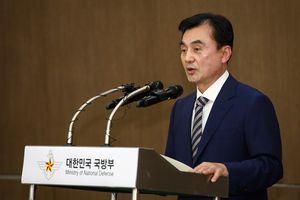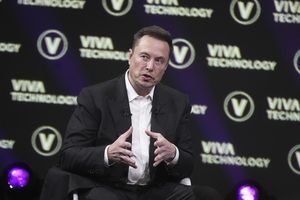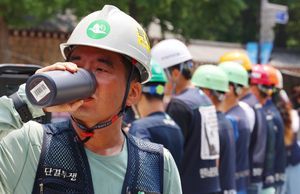 Christine Moon, a Korean American entrepreneur with over 15 years of experience in Silicon Valley at major tech firms like Google and Dropbox, is no stranger to uncharted paths. Now, she’s pioneering a more rugged and overlooked frontier in autonomous driving: off-road terrain.
Christine Moon, a Korean American entrepreneur with over 15 years of experience in Silicon Valley at major tech firms like Google and Dropbox, is no stranger to uncharted paths. Now, she’s pioneering a more rugged and overlooked frontier in autonomous driving: off-road terrain.
“In the software startup world, you typically fall into three categories: ‘pain pill,’ ‘vitamin,’ and ‘candy,'” Moon explained in a recent interview in Seoul. “Waymo Robotaxi, for instance, is fun and futuristic – it’s like candy. You can still get around with Ubers and Lyfts, or drive yourself.”
“But the problems we’re addressing at BlueSpace? We’re a pain pill. There’s a critical shortage of labor in mining, farming, and defense. Young people aren’t lining up to work underground in mines or spend weeks away from their families as truckers. Even in developing countries like India, the younger generation is shying away from these tough jobs. They have options now. As we look to the future, it’s clear: robots, humanoids, quadrupeds, and autonomous systems will fill these gaps.”
Moon emphasized that BlueSpace isn’t competing with Tesla or Waymo. Their focus is on off-road environments that lack high-definition maps and clear road markings – areas where traditional autonomous technologies, reliant on geofencing, fall short. Instead, BlueSpace is developing a physics- and math-based approach that doesn’t depend on HD maps, GPS signals, or extensive datasets.
“Our approach means we don’t need vast amounts of data or prior information, which translates to significant cost savings,” Moon said. “Plus, with the current shortage of GPUs, our CPU-based system is particularly advantageous.”
BlueSpace’s technology uses 4D sensors to capture both position and velocity of objects, allowing for more accurate and faster object detection. This high-performance, cost-efficient, and user-friendly approach caught the attention of the U.S. Army, leading to a $1.6 million contract in 2023 to enhance perception sensing for future unmanned ground vehicles.
“When we meet with military officials, they often remind us to consider the perspective of an 18-year-old high school graduate operating an Abrams tank all day,” Moon shared.
“That’s why it’s crucial to present just the right amount of data in a comprehensible way – exactly what BlueSpace aims to do.”
The startup has attracted notable investors, including YouTube co-founder Steve Chen and K-pop mogul Lee Soo-man, raising $3.5 million in seed funding. With $12.5 million raised towards their $15 million Series A goal and $2.5 million in revenue, BlueSpace projects $30 million in revenue by 2027.![Christine Moon, president and co-founder of BlueSpace, poses for a photo before an interview with The Korea Herald in Seoul on Thursday. (The Korea Herald/Im Se-jun)]](https://contents-cdn.viewus.co.kr/image/2025/07/CP-2023-0309/30474949_1.jpg) BlueSpace’s growing reputation in construction and defense caught the eye of Korea’s Hanwha Group, leading to a partnership in October 2023 to bring cutting-edge autonomous solutions to U.S. defense customers.
BlueSpace’s growing reputation in construction and defense caught the eye of Korea’s Hanwha Group, leading to a partnership in October 2023 to bring cutting-edge autonomous solutions to U.S. defense customers.
Echoing Waymo co-CEO Dmitri Dolgov’s assertion that “there’s no single model that solves everything,” Moon stressed the importance of diverse approaches in autonomous driving technology.
“This is a complex, unsolved problem,” she emphasized. “It’s not just about the big players. Remember Skype? Once dominant, now obsolete. We need to stay open to the possibility that a small company could deliver the next breakthrough. In this field, innovation can come from anywhere.”
Moon’s journey to Silicon Valley began after graduating from Yonsei University in Seoul. She earned a Master’s from Yale and cut her teeth in M&A at Morgan Stanley before joining Google in 2004, seeking a more passionate and independent career path.
“I never specifically sought out Korean companies, but as head of Android partnerships at Google, I worked closely with Samsung and LG,” Moon recalled.
“Now, collaborating with Korean giants like Hyundai, Kia, and Hanwha fills me with pride. Just as K-pop and K-culture have gone global, Korean companies are making their mark worldwide.”
The Top 100 Global Innovators series spotlights the trailblazers shaping Korea’s future across a range of industries — from bold entrepreneurs and tech pioneers to research leaders — whose innovations are making a global impact beyond Korea. More than a celebration of success, the series offers a deeper exploration of the ideas, breakthroughs and strategies driving their achievements. — Ed.









Most Commented